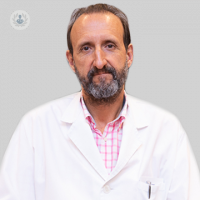Posttraumatic stress disorder
Written by:¿What is posttraumatic stress disorder
?The posttraumatic stress disorder is a clinical condition characterized by the presence of various symptoms, including neurological manifestations usually ( headache, are dizziness, insomnia ) and psychiatric (irritability, mood swings, anxiety ). This situation is experienced by the patient as unpleasant. It is often disabling, as it can interfere significantly in social and family life and also in the labor scope, affecting performance.
¿That kind of experience can provoke
?Any trauma in the broadest sense of the word can cause the disorder. May be the result of situations emotional conflict end, but also sometimes appears after suffering a head injury in minor or more serious. There is some controversy about the possible presence of brain lesions as responsible for the clinical picture, because even cases where this may arise from a cerebral contusion are given, there are others where it appears in an apparently healthy brain.
¿Who affects
?Anyone can in circumstances such as those previously shown to suffer post traumatic stress syndrome, although they are more vulnerable individuals with a certain predisposition to stress, and those with a low pain threshold. The basic emotional situation in which the person is can also be decisive when symptoms occur.
¿are your symptoms
?Besides the usual neurological and psychiatric symptoms, people may also suffer refer others such as chest tightness, palpitations or the sensation of breathlessness.
¿How can identify
?The disorder is usually identified in people with a predisposition for certain personality base ( increased vulnerability to stress) in which diagnostic tests like electroencephalogram or TAC are negative.
¿, As can be
?To treat this condition first and most important is reassurance and help you control your anxiety through techniques relaxation and healthy living habits. Carrying out these measures and letting some time the symptoms are usually subside spontaneously. Sometimes it is necessary to use drugs ( antidepressants and anxiolytics ), and even the support of a psychologist.




